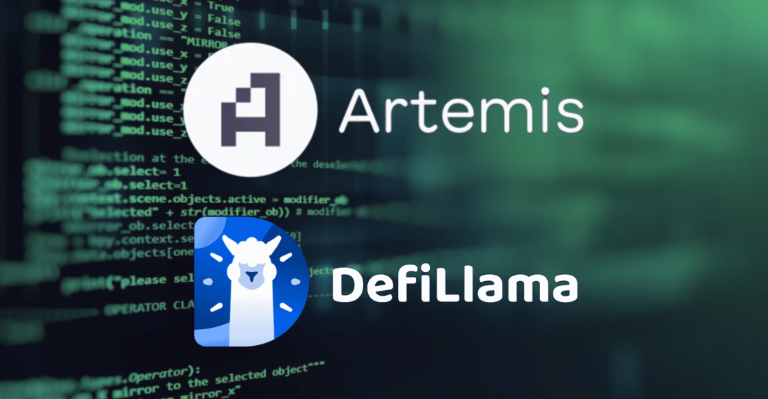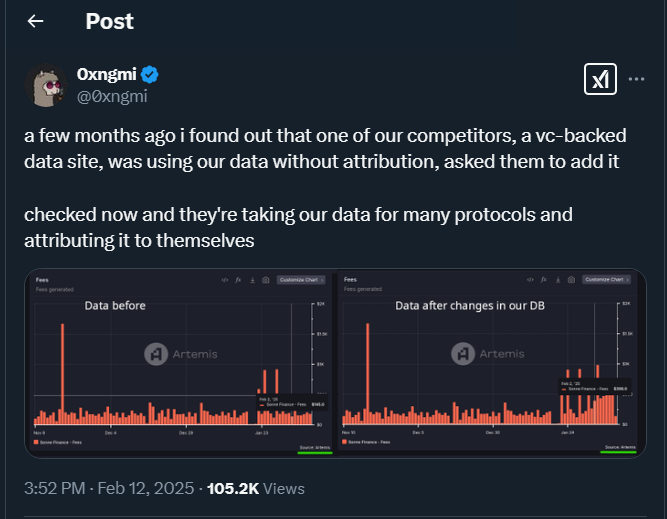TL;DR
- A DefiLlama developer accused Artemis of using its database without proper attribution, sparking a heated debate within the crypto community.
- Artemis argued that the lack of attribution was an unintentional mistake and assured that it has already corrected the situation.
- The incident reignites the debate on the risks of data misuse in open-source projects within the DeFi ecosystem.
The DeFi community is ablaze following accusations from @0xngmi, a DefiLlama developer, against Artemis, a venture-backed platform offering data analytics in the crypto space. According to the allegations, Artemis had used DefiLlama’s data without giving proper credit, igniting a wave of reactions on social media and sparking an intense debate about data ethics in Web3. The incident has drawn attention from prominent figures in the crypto industry, with some supporting DefiLlama’s stance while others argue that the situation is being blown out of proportion.
Accusations and Artemis’ Response
The controversy began with a post on X (formerly Twitter) where @0xngmi claimed that Artemis was presenting information obtained from DefiLlama as its own. To prove their point, the DefiLlama team inserted false data into an inactive database, and shortly after, those same numbers appeared in Artemis’ charts, labeled as “Source: Artemis.”
In response to these accusations, Crystal Tai, an engineer at Artemis, quickly explained that the lack of credit was a technical error and not a deliberate action. From its official account, Artemis issued a statement acknowledging that it had used DefiLlama’s metrics and that some references had not been properly attributed due to an oversight, which they had already corrected.
The Risk of Data in Open-Source Projects
The situation has sparked a broader discussion about the vulnerability of open-source projects to data misuse by competitors. DefiLlama, recognized as one of the most reliable analytics platforms in DeFi, has been built on the philosophy of decentralization and transparency, key principles of the crypto ecosystem. However, the case with Artemis demonstrates that without proper protection and regulation, these initiatives can be exploited by third parties. Some experts suggest that stronger licensing agreements and clearer attribution guidelines could help prevent similar disputes in the future.

Despite the controversy, most crypto experts agree that such incidents should not discourage the use of open technologies but rather reinforce the importance of collaboration and fair attribution within the DeFi space. The future of the decentralized economy depends on trust and integrity among its participants, and situations like this should serve as lessons to improve standards within the ecosystem.


